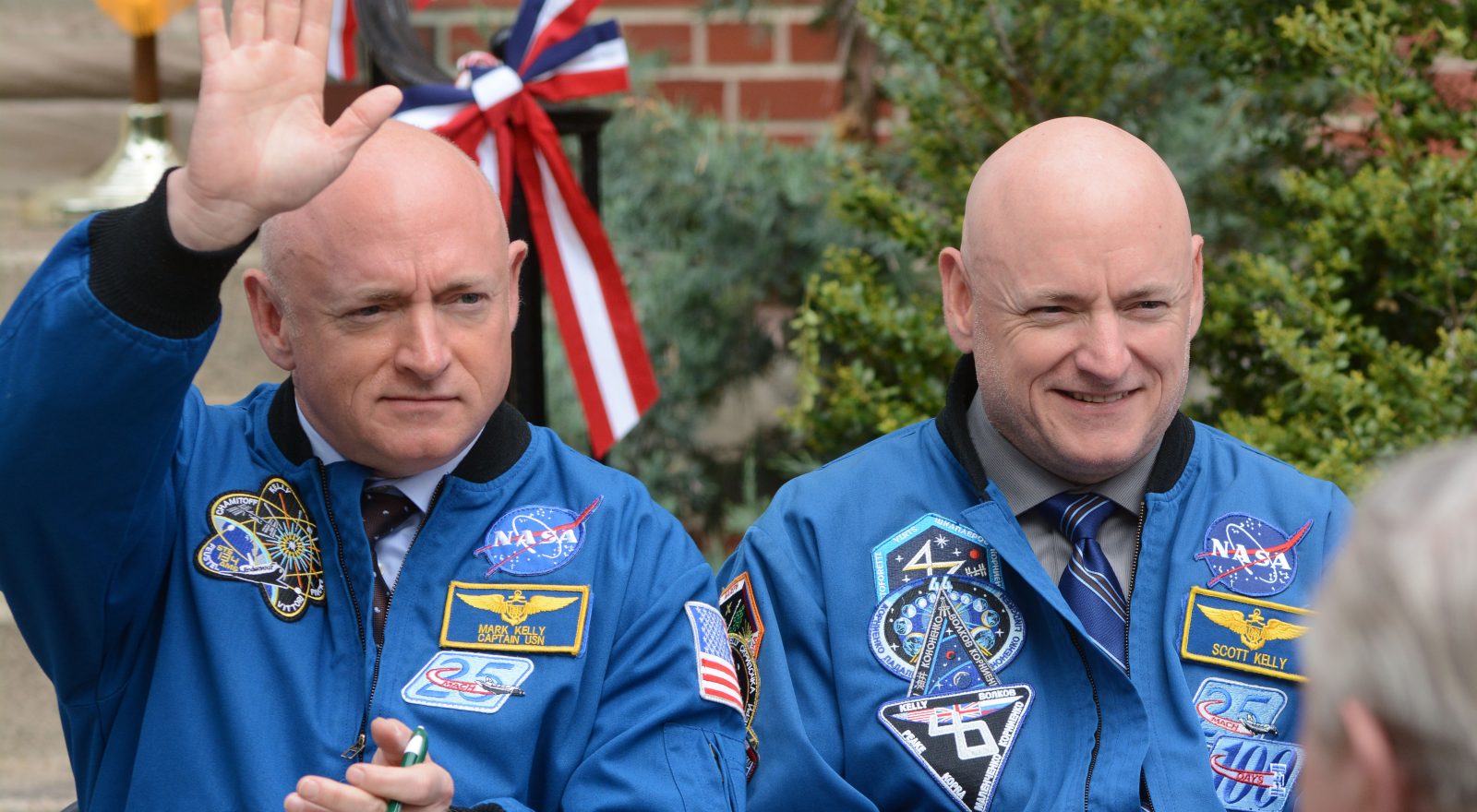A year out of Earth: how a human body can change
Scott Kelly spent 340-day in space for NASA's investigation that studied identical twin astronauts. In the meanwhile, his brother Mark stayed on Earth. Christopher Mason, guest of FBK at 2019 MAQC conference, took part in the research by studying the change in genes expression
Christopher E. Mason is head of “The Mason laboratory” that develops and deploys new biochemical and computational methods in functional genomics. We met him during the 3rd annual MAQC Society Conference in which he presented his recent studies about genomics and next-generation sequencing.
Dr. Mason, what would happen to a human body living in space?
We just completed a long scale study on what happens to the human body during one year of living in space. Scott Kelly, who was up there for one year ended up having longer telomeres, which are at the end of chromosomes. It’s as if he got younger in space: thousands and thousands of his genes changed their expression in response to being in zero gravity and receiving radiations. We’ve seen many changes to the human body in space but almost all of them will turn normal when one comes back to Earth. Overall, I think it’s very good news for looking at missions to go to Mars or potentially farther.
And what if somebody would decide to move to Mars?
We have to consider that it would take maybe nine months to get there, another year to stay there and another nine months to come back, so probably over 500 days, i.e. it could be as long as three years to go there and back. We know that it would probably be 5 to even 10 times as much radiation on the body so one of the really big questions we have is how much can the body tolerate and how much it can survive in places of really high radiation like between planets. So far we know from the one-year mission – from Scott Kelly – that it can do a pretty good job but we really want to start to model this on Earth as well as for other astronauts to make sure we can protect them and measure their health and their body so they can survive on Mars. There are two really big factors that complicate Mission to Mars and one of them is just the 0 gravity. Essentially, your body has to adapt to it, but we’ve seen is that the body does a pretty good job at adapting to 0 gravity – even if it’s not always pleasant – but in the case of radiations the situation get worse: what that does to the body is eventually cells will die off, it will break the DNA. The body has to constantly be repairing itself and it’s just much more difficult, so we think those are the two key questions that we’ll be looking at and the radiation is probably the biggest concern.
What else have you discovered with your ”NASA’s Twins Study”?
Some of the results of our study were actually the opposite of what we expected. So, for example, the telomeres, which normally shrink as we all get older, actually got longer when he was in space travelling at 8 km/sec orbiting the Earth. Also, we saw many gene change expression, go up and down in the beginning but then six times as many change at the end of the flight, so there does seem to be not just a little bit of adaptation but a continual adaptation in response to 0 gravity and the radiation, more than we expected by far. So, the changes that we saw in space, you know, most of them went back to normal when he’s on Earth. But it’s different from what you’d see from someone else just living on Earth. We saw the DNA damage persisted even when he came back to Earth so that had some long-lasting changes and also the gene expression, where genes go up and down, several hundreds of them were still… as if they were still in space. The body was still disrupted in terms of how genes were regulated compared to when he was in space. So we think most things return to normal but not everything.
We are at MAQC conference 2019 talking about data and AI in medicine. What is the state of the art?
Looking at MAQC today versus what previous work has done is really a leap forward in terms of grabbing the data and analyzing it, having reproducibility, really making sure that this era of big data is actually very useful and really applied to medicine and helpful for people. So I think that this society is making sure that the big data has really some big utility and making sure that it’s done accurately and reproducibly and will help a lot of people in many disciplines. For the MAQC meetings, these have a really large impact on many fields of science and I think they will continue to. So, for medicine we can look at how we diagnose cancer better, infectious disease, how embryos develop, and actually I think it will be the day you are born you will have your genetic code analyzed and you’ll have a roadmap for what drugs you should take and what it’ll be a good sort of way to build your life so you can understand genetic risk and then avoid disease long before you get it and even predict disease when you’re on the way and then detect it far earlier. So, I think for medicine it’s going to change almost everything about how we practice medicine and measure our bodies.

